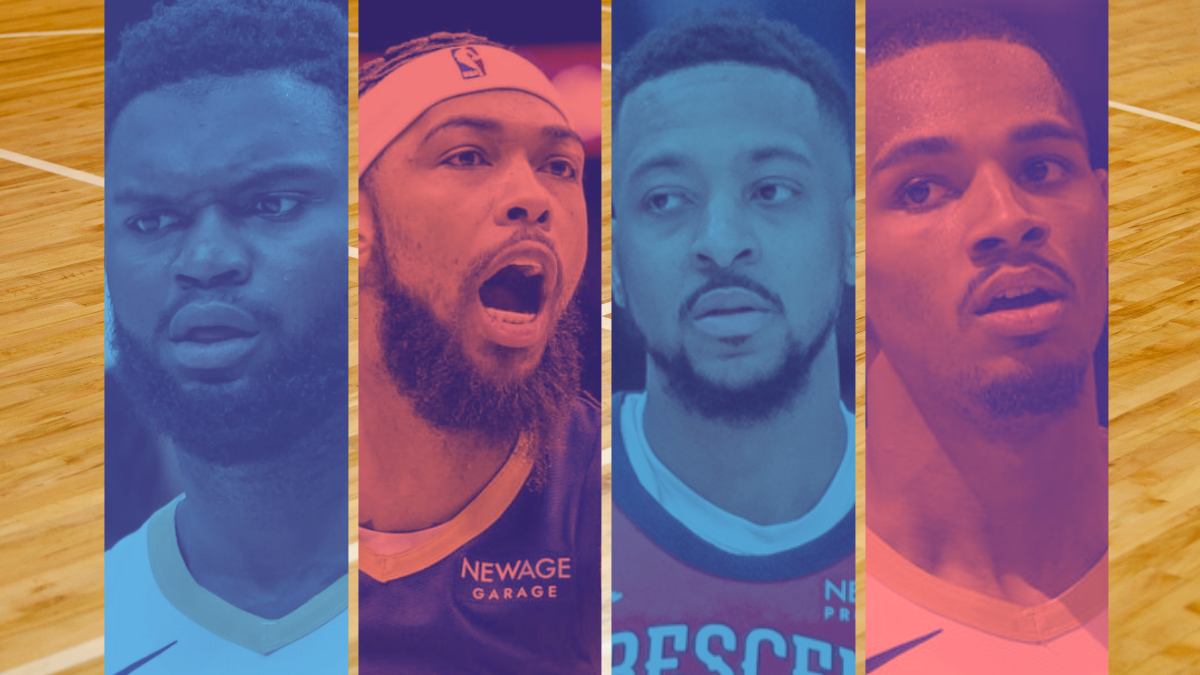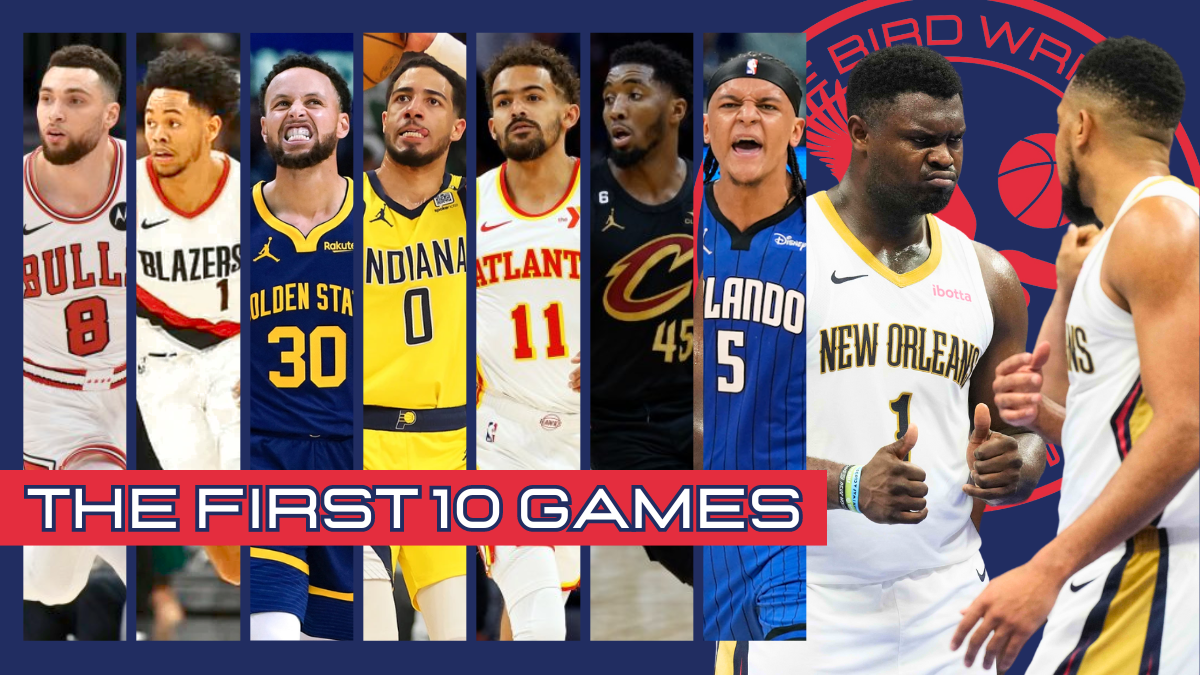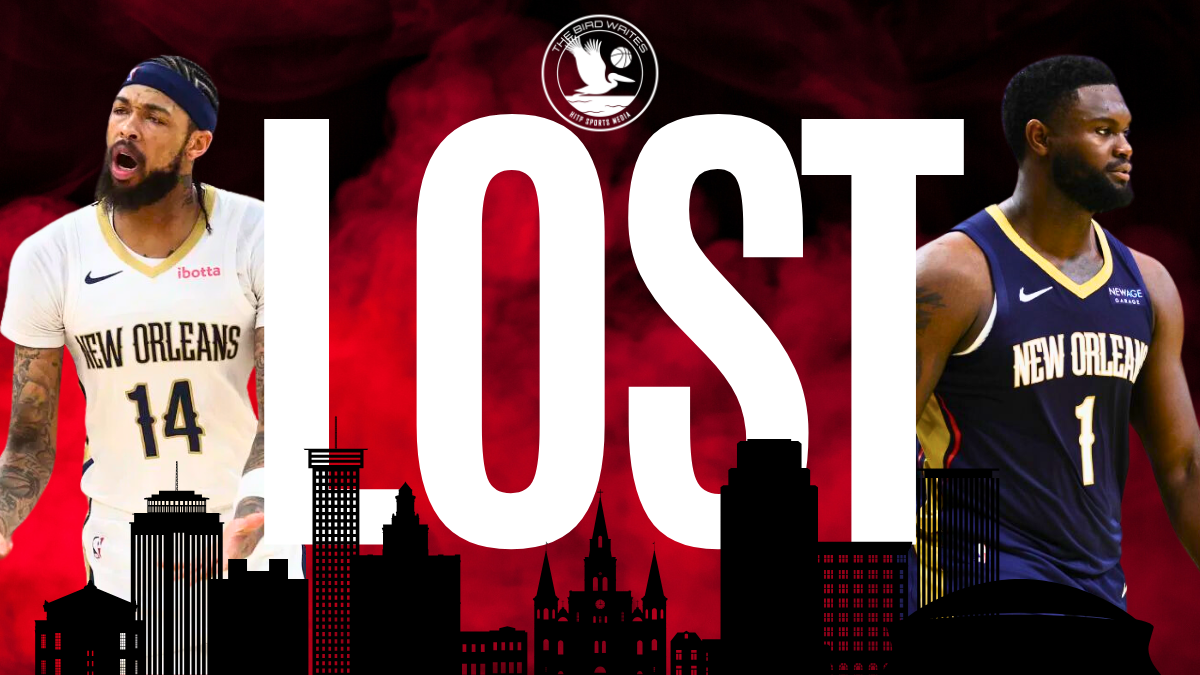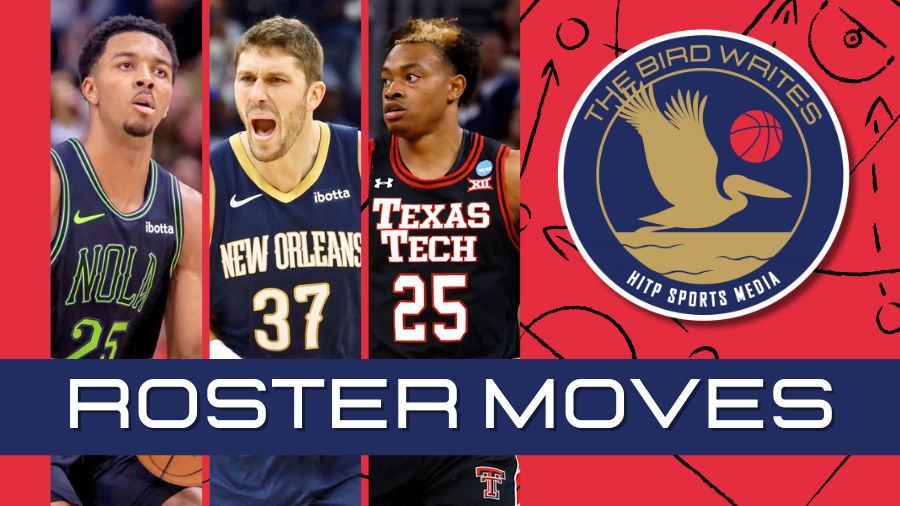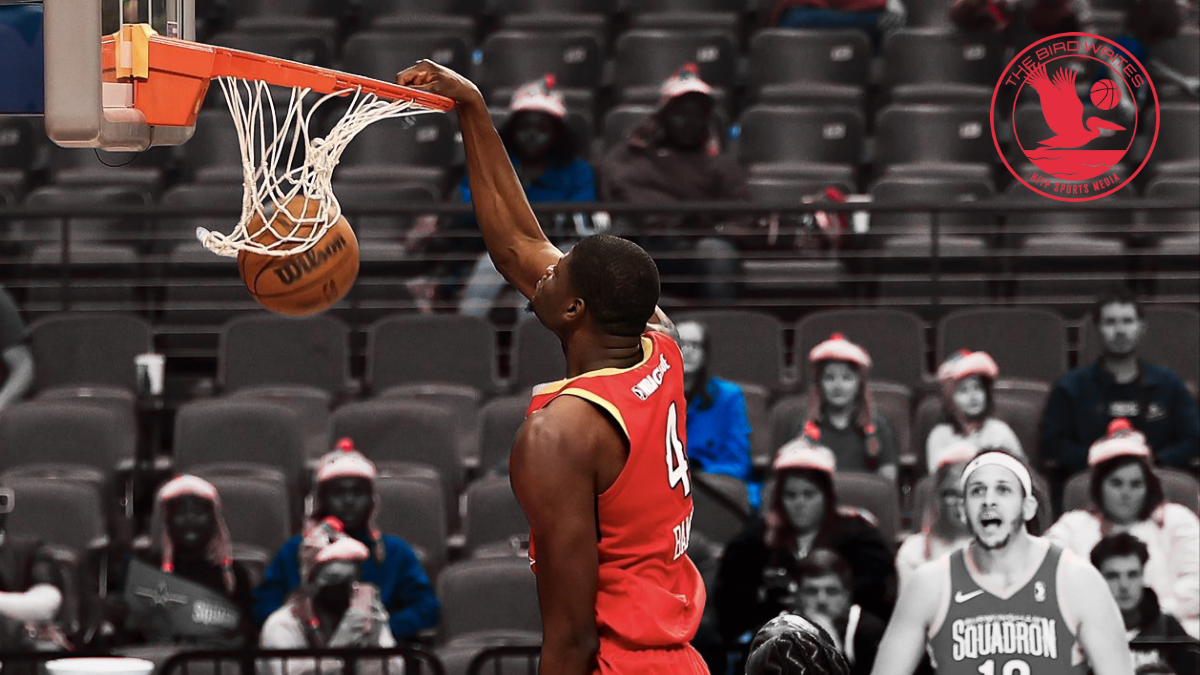It appears the New Orleans Pelicans are open for business. Facing injuries, expiring contracts, and potential luxury tax implications, the Pelicans are reportedly willing to listen to trade offers for nearly everyone on their roster, except All-Defensive swingman Herb Jones, recently extended sharpshooter Trey Murphy III, and this year’s surprisingly successful first-round pick, center Yves Missi.
Even if David Griffin and the rest of the front office are ready to shake things up, the Pelicans face an uphill battle to reshape the roster. Trading their highest-paid talents, Zion Williamson, Brandon Ingram, CJ McCollum, or even the recently acquired Dejounte Murray won’t be easy. Injuries, contract hurdles, inconsistent performances, and time may limit the Pelicans’ options.
Has former top pick topped out in NOLA?
Zion Williamson’s future remains in doubt, despite reports the Pelicans have no intention of trading the two-time All-Star. Drafted No. 1 overall in 2019, Williamson has flashed MVP-level dominance when healthy. The Pelicans are unquestionably a better team when he plays, going 101-89 (.532) with Zion on the court, just 92-135 (.405) without him. That’s the best among the team’s core, edging out CJ McCollum.
| Player | Win % With | Win % Without | Difference |
| Zion Williamson | .532 (101-89) | .405 (92-135) | .127 |
| CJ McCollum | .530 (96-85) | .368 (14-24) | .162 |
| Herbert Jones | .507 (116-113) | .364 (16-28) | .143 |
| Trey Murphy | .505 (107-105) | .410 (25-36) | .095 |
| Brandon Ingram | .489 (149-156) | .393 (44-68) | .096 |
Unfortunately, more often than not, he’s been on the sidelines. Zion appeared in just six games before taking to the bench with a hamstring issue. There is still no timetable for his return to game action.
Any trade involving Williamson comes with significant complications. On one hand, his $36.7 million salary for this season makes matching contracts difficult. On the other, his deal includes non-guaranteed salaries over the next three years, giving the Pelicans the option to waive him this summer and clear cap space.
However, the trade market for Williamson isn’t robust. ESPN’s Bobby Marks reports that New Orleans would likely net “expiring contracts and perhaps a future first-round pick.” That would be a disappointing return for a player once viewed as a generational talent capable of leading the Pelicans to the NBA’s upper echelon.
Instead, the Pels have made the playoffs only twice in five seasons, with Zion unable to play in either series as his team went down to defeat. Until Williamson can prove he’s healthy and capable of contributing consistently, teams will hesitate to take on his contract.
New Orleans could decide to keep Williamson and see if he can change his mindset or increase his trade value. Neither seems likely at this point.
Brandon Ingram: Productive, but Complicated
Brandon Ingram’s situation may be even trickier. The 26-year-old forward has been more consistent than Williamson, averaging 23 points, 5.5 rebounds, and 5.2 assists during his 305-game tenure in New Orleans.
This season, he’s put up similar numbers—22.2 points, 5.6 rebounds, and 5.2 assists on 46.5% shooting—but after playing the most games of his Pelicans career a season ago, he’s also injured. Ingram is currently out indefinitely with an ankle issue, sending his already decreasing trade value even lower.
For whatever reason, Brandon Ingram hasn’t developed into the player it looked like he might become when he was named a Western Conference All-Star during the 2019-20 season. He’s been good, sometimes very good, but never great.
Money will play a much bigger role than talent when it comes to moving BI. Ingram’s $36 million salary includes a 15% trade bonus, complicating any potential deal. Ingram is probably best suited for a championship contender who views him as a short-term rental and is willing to take the risk on him as the piece to put it over the top. The other likely option is a team with a lot of cap space seeking an upgrade on the offensive end.
But with his pending free agency and the uncertainty of his next contract, it’s easier to speculate than put together a realistic deal before he proves he can play.
The Pelicans, meanwhile, don’t appear interested in offering him a long-term extension. If they can’t find a taker, they could lose him for nothing this offseason.
CJ McCollum: Veteran Leadership, Steep Price
CJ McCollum remains one of the Pelicans’ most respected voices and has been the team’s best player lately, but his production this season has fallen off a bit. A career 40% three-point shooter, McCollum is shooting just 33.1% from deep, 44.1% from the field, and a career-low 66.7% from the foul line.
Injuries, including a lingering right adductor strain, have undoubtedly contributed to his struggles, but McCollum’s limitations on defense, never his strong suit, have also been glaring. His defensive rating has plummeted to 121 points per 100 possessions—the worst of his career.
While a contender in need of bench scoring, three-point shooting, and veteran leadership might consider McCollum, his contract would be a major obstacle. Signed through the end of next season, CJ is owed $33.3 million this season and $30.7 million next year. Paying over $30 million for a 34-year-old undersized shooting guard with injury concerns isn’t an appealing proposition for most teams, leaving the Pelicans with limited options.
Dejounte Murray: Buyer’s Remorse?
The Pelicans’ offseason centered around the trade for Dejounte Murray just months ago, sending two first-round picks, Larry Nance Jr., and NBA steals leader Dyson Daniels to the Atlanta Hawks to acquire the type of point guard the team hadn’t had since Rajon Rondo. However, according to Stein, the Pelicans are already open to the idea of moving Murray again.
Though he suffered a broken hand in the Pelicans’ season-opening win over the Chicago Bulls, causing him to miss 17 games, Murray hasn’t looked like himself so far. His 16.6 points per game is his lowest output since the 2020-21 season and his shooting numbers are the worst of his career.
Murray’s tenure in Atlanta ended sooner than expected, as he never truly fit with Hawks superstar Trae Young. Still, Murray’s relatively reasonable contract—three years and roughly $97 million—could appeal to teams looking for a defensive-minded guard with playmaking ability.
Trading Murray so soon after losing a lot of assets to get him would be admitting his acquisition was a failure, but with the team spiraling, New Orleans might prioritize long-term flexibility over pride.
The Draft and the Future
With the season all but lost, the Pelicans’ focus has inevitably shifted to the 2025 NBA Draft, where they are projected to secure a high lottery pick. If the Pelicans end up with the second overall pick, which is where their 5-22 record has them slated, they could have a shot at Rutgers standout Dylan Harper.
Harper, a 6’6” guard, has drawn comparisons to NBA stars like Tyrese Haliburton due to his scoring ability, court vision, and defensive versatility. Pairing Harper with young talent like Trey Murphy III and Herb Jones could mark the beginning of a new era for New Orleans. He would also be able to step into the point guard slot, easing the loss of Murray if the Pelicans decided to trade him.
Other top prospects in the draft include Harper’s teammate Ace Bailey, a 6-10 power forward with range and athleticism, and Lithuanian guard Kasparas Jakucionis. Jakucionis, currently playing at the University of Illinois, is a 6-6 ball handler with a high basketball IQ.
New Orleans could also hit the jackpot for the third time and take Duke phenom Cooper Flagg.
Where there’s smoke…
The New Orleans Pelicans are at a pivotal moment in the history of the franchise. Injuries, expiring contracts, too few wins, and too many losses have forced the front office to rethink its strategy. To climb out of the hell of NBA mediocrity, through purgatory, and into the realm of championships, changes must be made.
The road ahead won’t be easy, though it seems clearer than ever that the status quo isn’t working. Whether through trades, draft picks, or financial flexibility, the next few months will determine the franchise’s trajectory for years to come.
For more content, visit HITP Sports on YouTube or HITP Sports online.
READ MORE
- With season in shambles, Pelicans reportedly open to shopping Zion Williamson, Brandon Ingram
- Pelicans lose fourth straight, fall to Pacers 119-104
- Late rally not enough, Pelicans drop 111-109 heartbreaker to Kings
- Lost in another disappointing season, Pelicans search for path forward
- Pelicans fail to close in San Antonio, extend road losing streak to 12 with loss to Spurs
- Pelicans get rolled by the Thunder, fall 119-109
- Pelicans look to snap 9-game skid as Suns visit Smoothie King Center
- It’s time the Pelicans pull the plug on the Williamson/Ingram era that never was
- Spiraling Pelicans hope to break losing streak against surging Hawks
- Brandon Ingram joins Klutch Sports, uncertainty surrounds Pelicans’ future
- Knicks dominate lifeless Pelicans in 118-85 rout
- Pelicans look to end losing streak against Knicks at MSG
- Pelicans routed by Cavs despite Antonio Reeves’ career night
- Pelicans face NBA-Leading Cavaliers after humbling loss without Brandon Ingram
- After ending losing streak, Pelicans hope to build momentum by beating Lakers
- No joke: Pelicans carry 6-game skid into tournament opener vs. Nuggets
- With injuries and losses mounting, should Pelicans trade Brandon Ingram to jumpstart rebuild?
- Expectations. Injuries. Disappointment. Time for Zion Williamson to break the cycle
